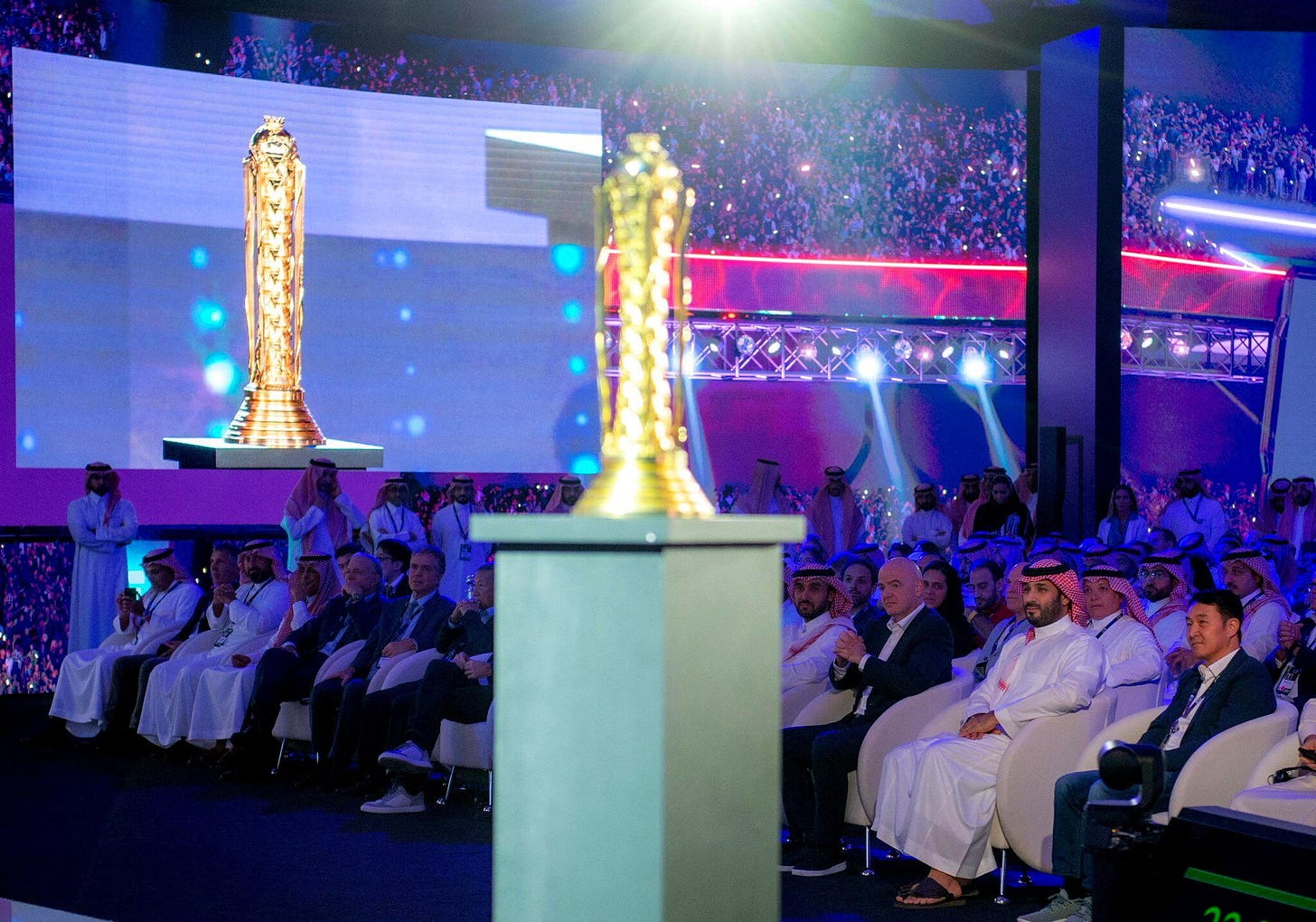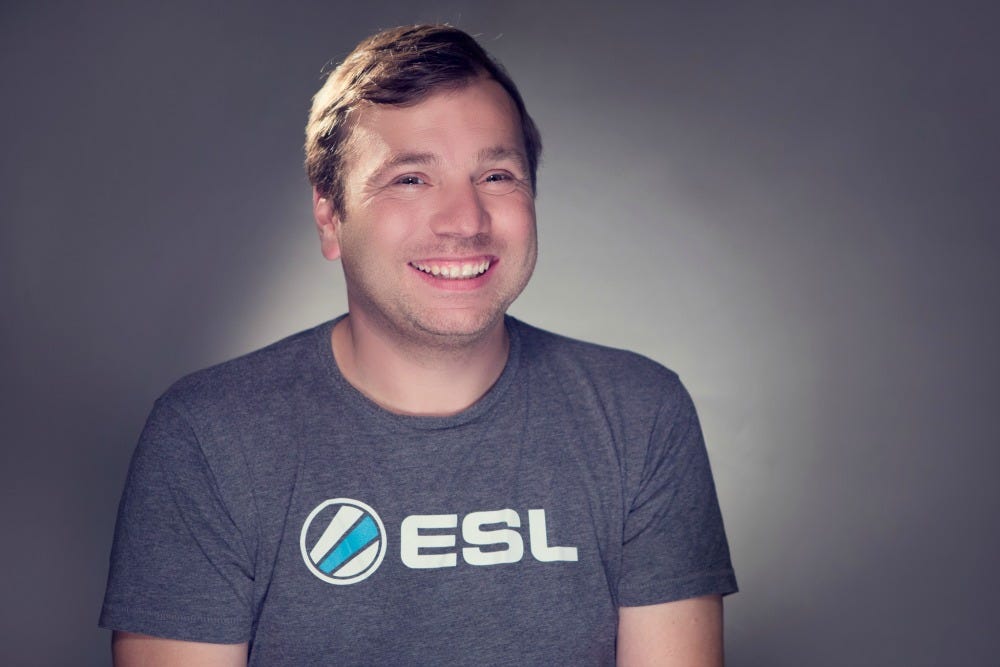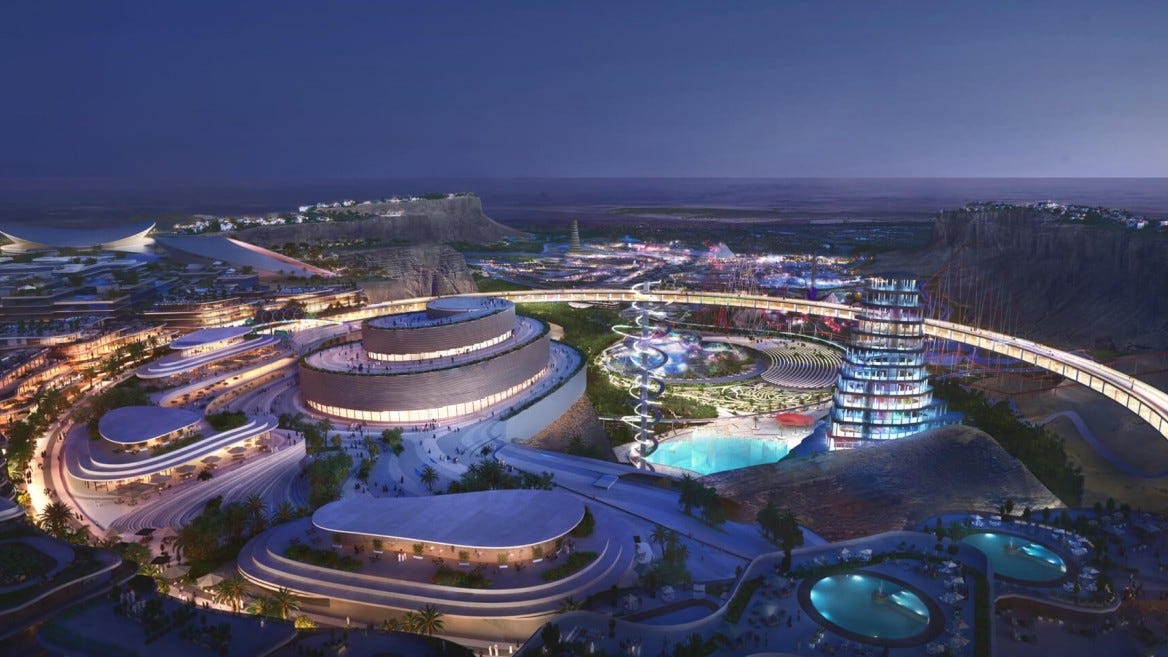The Great Saudi Arabian State “Pay To Play” Scheme
The new Esports World Cup "stimulus" program puts Saudi state money into any organisation that will pick up teams to participate in their tournament
As this publication revealed weeks ago via the Esports Gospel podcast, it was announced on February 2nd that the Saudi Arabian state owned Esports World Cup would be setting up a financial assistance program for twenty-eight organisations that operate in the space. Twenty-two of those are going to be invited to apply directly and six will be selected from an open application process where those wanting to share in the wealth will need to convince the ESWC executives they are worthy… Think Dragons Den but the applicants are even more spineless and pathetic.
The rewards for being chosen are summarised like this. Organisations that perform well in tournaments as well as generating viewership and social media engagement will be eligible for “an annual six figure payout.” What isn’t explained anywhere in the announcement is details of the criteria themselves. Which games? Which tournaments? Which platforms count? Questions I am sure don’t really matter in the grand scheme of things when it’s abundantly clear which teams will be qualifying and in particular which circuit will be prioritised.
You see, after what I am very sure was a long and arduous search the revived Esports World Cup settled on their new CEO… Ralf Reichart, the co-founder and former chairman of the ESL FACEIT Group that was acquired by the Saudi Arabian Public Investment Fund (PIF) in January 2022. The purpose of acquiring the brand was to give a less abstract branding to the Saudi Arabian State’s esports output, with previous tournaments having taken place under the Gamers8 Festival branding. The Saudi sportswashing operation in esports has also had a particular fixation with representing it as a global initiative. We’ve seen the International Esports Federation (IESF) and the Global Esports Federation (two entities that were essentially meaningless at the highest level of esports) enter into a cooperation agreement just months after Prince Faisal of the Saudi Arabian royal family was appointed as President of the IESF. They are now focused on using their combined efforts to push esports into the Olympics and thus provide Saudi Arabia with another means through which to normalise their regime on a bigger political stage.
Last year’s Gamers8 provided huge financial opportunities for the organisations willing to participate in Riyadh. Last time around they set aside $1,500,000 solely for performance bonuses and social media engagement bonuses. The latter was measured by hashtag tracking, something we found out when we published a story about how Team Liquid monetised an explanation for their patently hypocritical stance in attending esports event in a country where homosexuality is criminalised just weeks after their socials were resplendent with Pride Month rainbows. In a statement they provided they denied the use of the hashtag was financially motivated stating “The reason why we used the hashtag is very simple. We used it to add a contradicting voice to the conversation on the topic. That’s it. Additionally, I believe that if we had not used the hashtag I think it would have looked like we were trying to dodge bringing attention to the post, which is the last thing we wanted.”
To be clear though while this new program might have some of the features of that used by Gamers8, this is much wider in scope, something apparent despite their attempts to cloak that fact with vague language. The performance bonuses for Gamers8 were solely for placements at that event, the social media rewards were equally allocated only to posts that used the right labeling. Unless the statement accompanying the announcement has included a catastrophic failure of basic English, which given the competency levels of the average esports operation cannot be ruled out, the rewards are now provided for annual activity in the build up to the Esports World Cup event.
“Clubs accepted into the Program that show competitive excellence, draw the most viewership, and generate social engagement leading up to and during the World Cup will be eligible for an annual six-figure payout” it reads. “This incentive will offer a sustainable opportunity for the Clubs to maximize their participation in the World Cup, based not just on their competitive performance but also on their ability to grow their international esports fanbase.”
Then later in the FAQ section it states:
“In 2024, a one-time stimulus is available to the teams that want to enter into new esports titles to compete in a cross-game tournament.”
And a further explanation as to why they are doing it reads:
“Many clubs have a limited ability to viably expand their rosters and compete in multiple games at the highest level. In an effort to help break this barrier, the Club Program offers financial incentives that will enable clubs to expand into more titles and receive an additional revenue stream to further strengthen their business. This is a key element of our vision of building a stronger esports ecosystem and elevating esports as global sports.”
So, let’s be clear about what that means. For a select number of people “chosen” by the Esports World Cup they will be given a one time cash injection, irrespective of what is referenced in the previous statement, for the mere act of wanting to enter into another esports title that the Esports World Cup will host tournaments for. Or, putting it another way, they will pay for their partners to pick up a team in a discipline they don’t already represent. These numbers have not been publicly made available but multiple sources have stated that they range from $100,000 – $300,000 depending on the game. And understand this isn’t a business transaction in the traditional sense, it’s just a one off payment for organisations that theoretically might not even qualify for the World Cup itself.
If your kneejerk reaction is to be blinded by the benevolence then you now know exactly why they’re doing it in the first place. It is just one of the reasons why sportswashing is so effective, particularly when the unethical money is propping up scenes that were teetering on the brink of failure. It also means that everyone who accepts these “stimulus” payments are essentially on the hook of the whims of the Saudi Arabian state for the foreseeable future, which is the point. You can expect a surprising lack of variety in the discussions about global human rights this June in much the same way you won’t hear much talk of Taiwan at esports events. A brave few will doubtlessly attack conservatives in their own country while posing for pictures with Saudi’s Crown Prince himself.
I’m also prepared to have to listen to how it’s really no different from when a developer, such as Riot Games, provides a stipend for participation in their esports leagues. Except, you know, they’re business partners and whatever Riot say to the contrary the participation of popular esports organisations is good for everyone’s business. In the Saudi example the “business” is threefold. Improve international reputation, wield financial control over potentially criticising partners and placate their young populace by providing the bread and circuses they desire that have been previously stifled due to the regime’s international standing and laws.
What this creates is a spectacular layer cake of conflict of interest something that is completely normalised in Saudi business operations. We will now have teams that are partially or entirely funded by the Saudi Arabian state entering a tournament owned and run by the Saudi Arabian state which is operated by a company entirely owned by the Saudi Arabian state. This is before you even get into the weeds of games developers taking investment money or selling shares to that same Saudi Arabian state, something that is happening with increasing regularity as the country tries to divest as much of its oil wealth as possible.
Add to that Saudi’s very own organisation Falcons who you can be sure will be allowed to circumvent the qualifying criteria in order to attend as home town heroes or other such bullshit. Their CEO has gone on record saying they aren’t funded by the PIF and then walked that back to say that no singular investor is putting in 5% of PIF money. When asked to disclose who these investors are he simply smiled and said that they would prefer to be anonymous and that’s the end of that I guess. As most major tournament operators find reasons to include them you will notice that at no point have they been told that in order to participate they must divulge those names. Contrast that to those other non-Saudi operated organisations, such as Heroic, who have found themselves subject to serious scrutiny over purported proximity to 1xBet or previously installed roadblocks to entities such as ESFORCE and their multi-team ownership strategy.
Not that you would even ever need to see that list to be able to draw a straight line between the Saudi Arabian state and the funding of Falcons since as the Saudi Arabian Telecom company, owned by the PIF and run by Mohammed bin Khalid Al Saud is one of their principle sponsors. So now we’re no longer just dealing with matters of greed and hypocrisy but rather we’re looking at a complete lack of any integrity guardrails. You don’t need to have a vivid imagination to see all the ways that this could compromise tournaments in the lead up to the World Cup and not just their event itself. It especially becomes likely when you consider the people who would be asking for the favours and their track record of violence and intimidation.
The other aspect to the dynamics of compliance that no one seems to talk about is the emergence of Qiddiya, one of Saudi Arabia’s so-called gigprojects. Qiddiya aims to be a giant resort dedicated to entertainment and esports and is set to become the industry’s sponsor of choice after NEOM was soundly rejected by the wider community. Again wholly funded by the PIF it has publicly boasted that “the district willl also host 25 esports clubs from around the world to live, train and compete” without stating who these would be although if you’re following this article you already know.
So, in addition to the stimulus payments, the “bonuses” and the unprecedented prize pools you can also throw in a state of the art training facility available to all the organisations on the Saudi teat with free residence whenever you wish to use it. The wording suggests that now part of the lives of their esports professionals will include a period of residence in Saudi Arabia. Well guys, I hope you’re ready for that and all it entails considering that it’s a country where you can be arrested for recording a video of yourself eating breakfast with a woman or publicly expressing support for women’s rights. Keep in mind there’s already an exodus of the professional footballers that took the lucrative Saudi Pro League deals last Summer for a variety of reasons including how miserable it has been for their wives. The difference between them and an esports professional is quite simple – they have options outside of Saudi control, something that is increasingly not true in our industry.
There is no fixing any of this. The entirety of esports has been sold out from under conscientious fans by weak, greedy c-suite executives who were too incompetent or impatient to even attempt to fix the business’s broken revenue system. If you care about any of this you are waiting on a number of things to happen, all of which are impossible dreams. First and most ridiculous of all you are waiting on the Saudi Arabian state to value all human life equally, even if you happen to be someone condemned by ancient religious text. Second and almost as equally ridiculous you are waiting for a coalition of the willing to reject the vast sums of Saudi money and refuse to participate in anything they fuel. We know that these people no longer exist in esports. Thirdly you’re waiting for developers to extend their values beyond the borders of the United States and Europe and apply them evenly to their business partners even at the great expense it would cost. These are the three impossible solutions to the death of esports as we knew it.






It's gotta be tough to be one of the eSports OGs (roughly) and, 15 years later, do everything you can to bring awareness to the disaster of what is happening to eSports, while simultaneously knowing that nothing you do can possibly change the eventual outcome. But because you try so hard, Rich, we all pay you to keep up the great work. So keep it up!
For me, the most surprising part of this article is that Qaddiya isn't spellt Kadir. And really, even that shouldn't surprise me. These Saudis aren't that great at obscuring the truth, it's more like they throw some coins in the opposite direction and the esports community goes running after it like a seagull chasing a small child with some chips (who will delete this comment first? Big Gull or Saudi Arabia?)